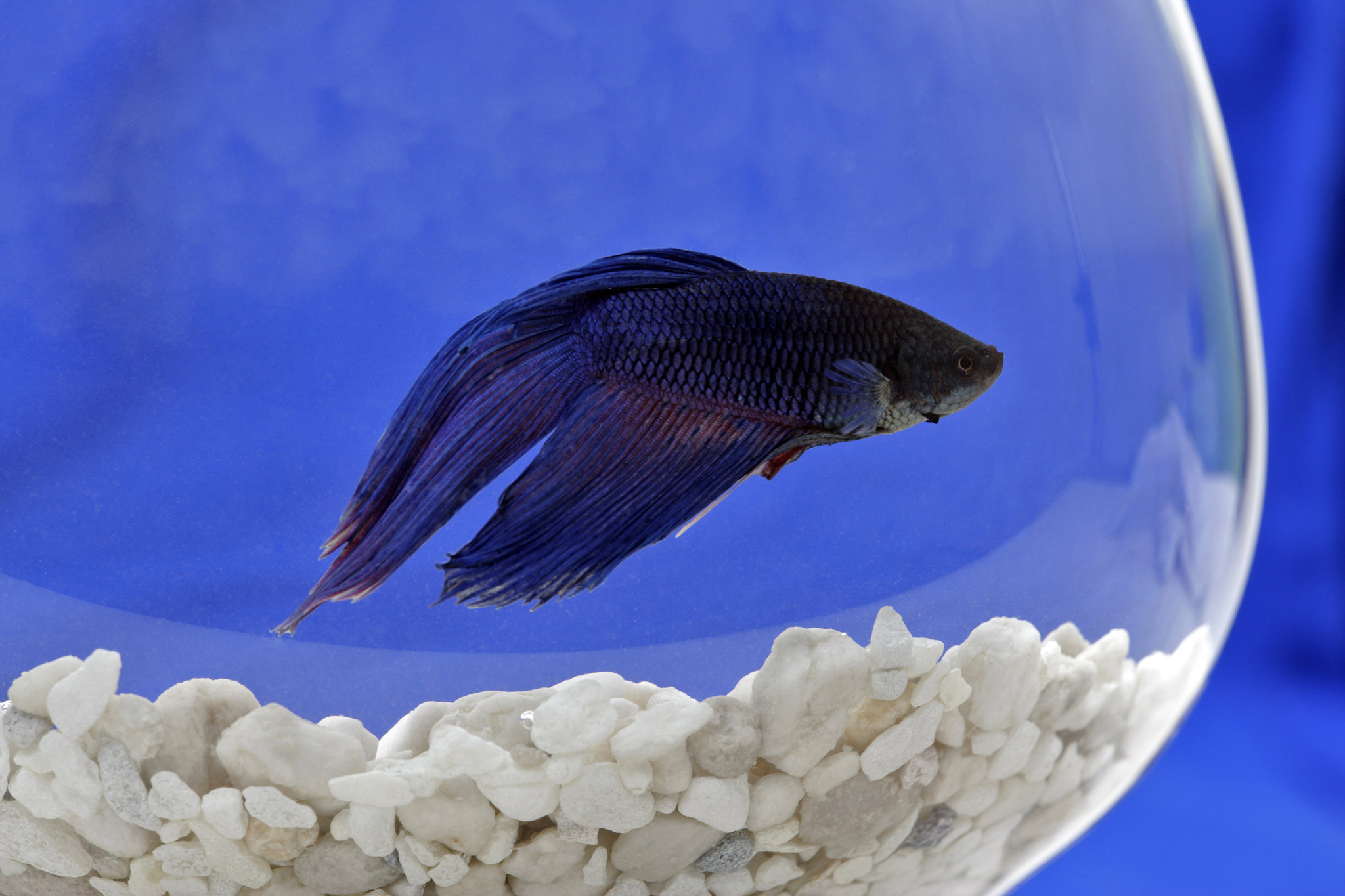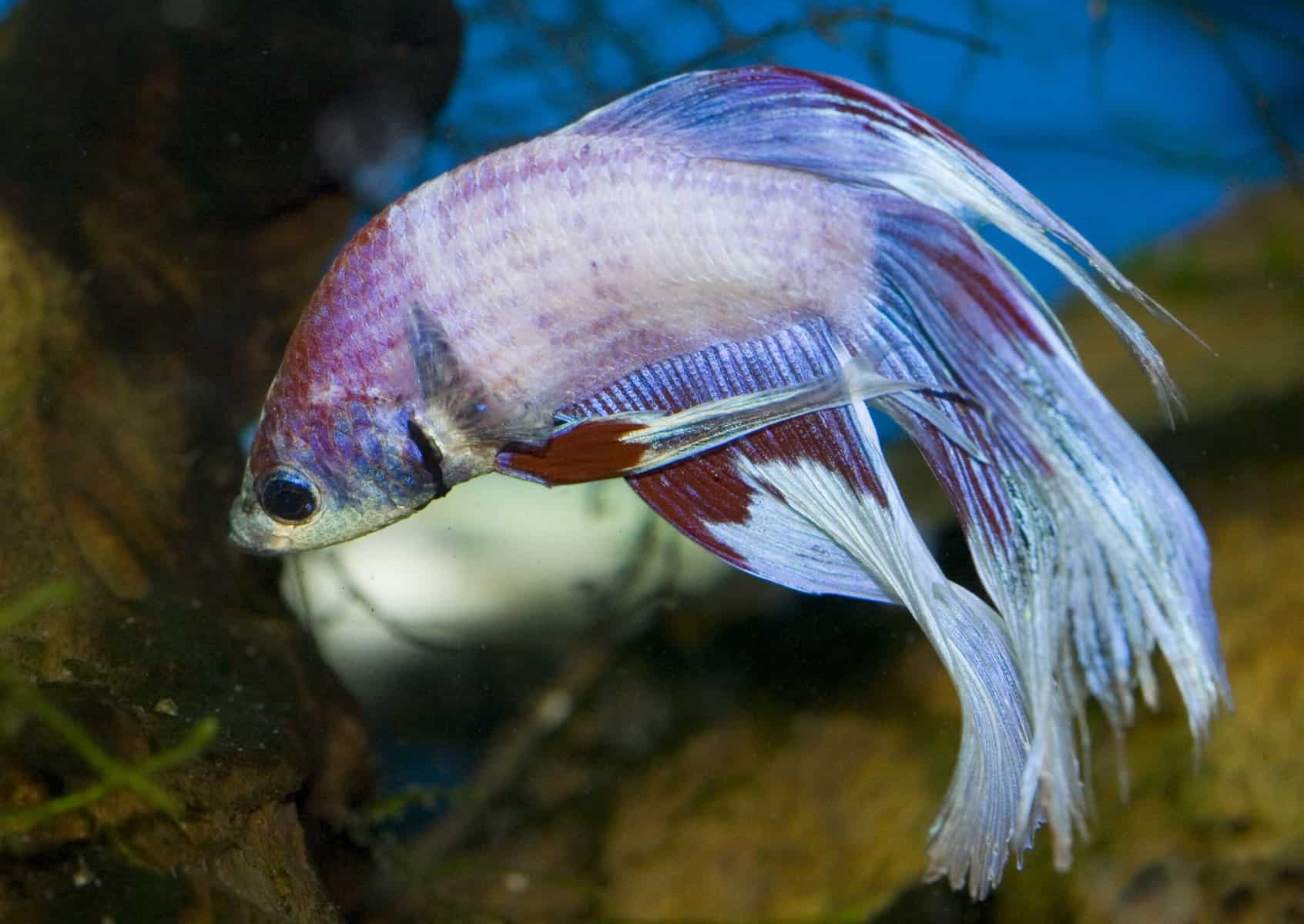Originally posted on May 24, 2023 @ 12:00 am
Last Updated on 5 months by admin
Betta fish, also known as Siamese fighting fish, are beautiful and popular pets. However, it’s vital to recognize the signs of depression in these fish, as they can suffer from mental health issues just like humans.
Depression in betta fish can be caused by factors such as poor water quality, inadequate tank size, and lack of stimulation. As responsible pet owners, it’s our duty to address these issues and provide our bettas with the care and attention they need to thrive. In this article, we’ll explore the signs of depression in betta fish and provide tips for addressing and preventing this serious condition.
Recognizing and Addressing Depression in Betta Fish
If you notice your betta fish is lethargic, not eating, or hiding, it may be experiencing depression. Some causes of depression in bettas include improper water conditions, loneliness, or illness. To address depression, ensure your betta’s tank is clean and the water is properly treated. Consider providing toys or plants for entertainment and companionship. If symptoms persist, consult a veterinarian for further advice.

Recognizing and Addressing Depression in Betta Fish
Betta fish, also known as Siamese fighting fish, are a popular aquarium fish species. These colorful fish are known for their aggressive behavior and beautiful fins, but they can also suffer from depression. Depression in betta fish can be caused by a variety of factors, including poor water quality, inadequate diet, and insufficient stimulation. In this article, we will discuss how to recognize and address depression in betta fish.
Recognizing Depression in Betta Fish
Betta fish are social creatures and enjoy interacting with their environment. A happy and healthy betta fish will be active, curious, and responsive. However, when a betta fish is depressed, it may exhibit several signs of distress.
The first sign of depression in a betta fish is a lack of appetite. If your betta fish is not eating, it may be a sign that it is depressed. In addition, a depressed betta fish may become lethargic and spend more time at the bottom of the tank. It may also lose interest in its surroundings and stop exploring.
If you notice any of these signs, it is important to take action to address the problem. Ignoring the issue can lead to further health problems and even death.
Causes of Depression in Betta Fish
There are several factors that can contribute to depression in betta fish. One of the most common causes is poor water quality. Betta fish are very sensitive to changes in their environment and require a consistent and clean habitat. If the water in their tank is dirty or contains high levels of ammonia or nitrite, it can cause stress and lead to depression.
Another cause of depression in betta fish is an inadequate diet. Betta fish require a varied diet that includes both protein and vegetables. If they are only fed one type of food, it can lead to nutritional deficiencies and depression.
Finally, a lack of stimulation can also cause depression in betta fish. These fish are intelligent creatures and require mental and physical stimulation to thrive. If they are kept in a small, uninteresting tank with no hiding places or toys, they can become bored and depressed.
Addressing Depression in Betta Fish
If you suspect that your betta fish is depressed, there are several steps you can take to address the problem.
The first step is to ensure that your betta fish is living in a clean and consistent environment. This means regularly cleaning the tank and monitoring the water quality. You should also provide your betta fish with a varied diet that includes both protein and vegetables.
In addition, you can provide your betta fish with mental and physical stimulation. This can include adding plants or decorations to the tank, providing hiding places, and introducing new toys.
If your betta fish is still showing signs of depression, you may need to seek the help of a veterinarian. A veterinarian can help diagnose any underlying health issues and provide appropriate treatment.
The Benefits of a Happy Betta Fish
Taking steps to address depression in your betta fish can have several benefits. A happy and healthy betta fish will be more active and curious, which can make it a more enjoyable pet to watch and interact with. In addition, a healthy betta fish will have a longer lifespan, allowing you to enjoy its companionship for years to come.
Betta Fish vs Other Fish Species
Betta fish are unique in their behavior and care requirements, making them a popular choice for aquarium enthusiasts. Unlike other fish species, betta fish are territorial and should be kept alone in a tank. They also require a consistent and clean environment, as well as mental and physical stimulation to thrive.
In addition, betta fish have a unique personality and can interact with their owners, making them a popular choice for those looking for a more interactive pet.
Conclusion
Depression in betta fish is a serious issue that should be addressed as soon as possible. By recognizing the signs of depression and taking steps to address the underlying causes, you can help your betta fish live a happy and healthy life. Remember to provide your betta fish with a clean and consistent environment, a varied diet, and mental and physical stimulation to ensure its well-being.
Frequently Asked Questions:
Depression can be a common occurrence in Betta fish, and it’s important to recognize the symptoms and address them promptly. Here are some frequently asked questions about recognizing and addressing depression in Betta fish:
What are the symptoms of depression in Betta fish?
Depression in Betta fish can manifest in a variety of ways. Some common symptoms include lethargy, loss of appetite, decreased activity, and a lack of interest in their surroundings. They may also become more reclusive and spend more time hiding in their tank. In some cases, depressed Betta fish may even develop physical symptoms such as fin rot or fungal infections.
If you notice these symptoms in your Betta fish, it’s important to act quickly and take steps to address their depression. Ignoring the problem can lead to further health complications and a lower quality of life for your fish.
What causes depression in Betta fish?
Depression in Betta fish can be caused by a variety of factors. One common cause is a lack of stimulation and environmental enrichment in their tank. Betta fish are intelligent creatures that require mental and physical stimulation to thrive, and a lack of these things can lead to depression.
Other common causes of depression in Betta fish include poor water quality, insufficient nutrition, and stress. It’s important to address any underlying issues that may be contributing to your fish’s depression in order to help them recover and improve their overall well-being.
How can I help my depressed Betta fish?
If you believe that your Betta fish is suffering from depression, there are several steps you can take to help them. First, make sure that their tank is clean and properly maintained. Poor water quality can be a major contributor to depression in fish.
You can also provide your Betta fish with mental and physical stimulation by adding decorations and plants to their tank, as well as providing them with toys and puzzles to play with. Additionally, make sure that your Betta fish is receiving a balanced and nutritious diet to support their overall health and well-being.
Can medication help with depression in Betta fish?
In some cases, medication may be necessary to help a depressed Betta fish recover. Antidepressants and anti-anxiety medications can be effective in treating depression in fish, but they should only be used under the guidance of a veterinarian or aquatic specialist.
It’s important to note that medication should not be the first line of treatment for depression in Betta fish. It’s always best to address any underlying environmental or health issues that may be contributing to their depression before resorting to medication.
Betta fish are known for their aggressive behavior and territorial nature, so introducing them to other fish can be tricky. In some cases, introducing a compatible tank mate may help to alleviate depression in Betta fish and provide them with some much-needed social interaction.
However, it’s important to do your research and carefully introduce any new fish to your Betta’s tank. Introducing incompatible fish can lead to stress and aggression, which can make the problem worse. Always monitor your fish closely and be prepared to separate them if necessary.

In conclusion, recognizing and addressing depression in betta fish is crucial in ensuring their overall well-being. As pet owners, it’s important to be aware of the signs and symptoms of depression in our betta fish, such as lethargy, loss of appetite, and lack of interest in their surroundings.
Once we’ve identified that our betta fish is suffering from depression, there are a few steps we can take to help them. One is to ensure they’re living in a suitable and stimulating environment, with plenty of hiding places and things to explore. Another is to adjust their diet and feeding schedule to ensure they’re getting the nutrients they need.
Finally, if necessary, we can seek professional help from a veterinarian or fish expert to address any underlying health issues that may be contributing to our betta fish’s depression. By taking these steps, we can help our beloved betta fish lead a happy and healthy life.
